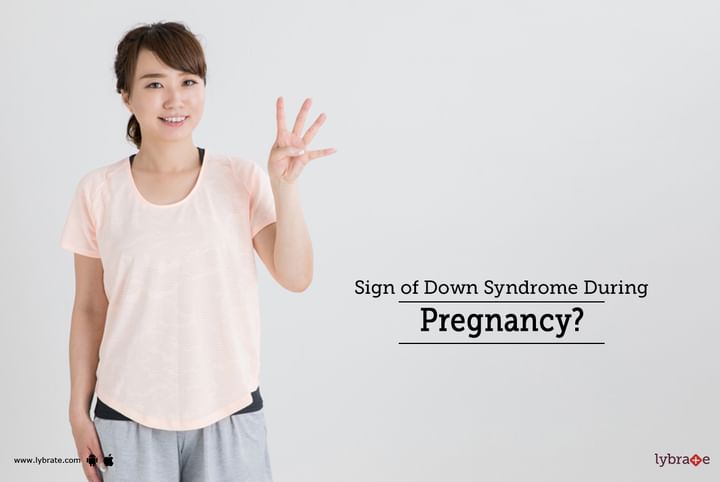Sign of Down Syndrome During Pregnancy?
Signs of Down syndrome during pregnancy can be only detected through screening. This is because no symptoms of this disorder are experienced in pregnancy. Screening is an important part of prenatal care. It is performed mainly when :
-
Expecting mother is 35 years or more than that
-
The age of baby's father is more than 40 years
-
A family history of Down syndrome
The first trimester of pregnancy
Screening during the first trimester of pregnancy consists of blood tests as well as ultrasound. The possibility of the false-positive test results is higher during this time than the tests done at later stages of pregnancy. If results are positive, then it is followed by a confirmatory test known as amniocentesis, performed after 15 weeks of pregnancy.
The second trimester of pregnancy
This phase of pregnancy is marked by ultrasound and quadruple marker tests for the identification of any signs of down syndrome in the developing fetus. Any other defect in the brain and spinal cord can also be detected through these screening tests. If results are not normal in any of these, pregnancy is considered to be at high risk for birth defects. These are done in 15 - 20 weeks of pregnancy.
Additional prenatal tests
These include some other additional tests for the identification of Down syndrome in the developing baby. These are considered as confirmatory tests in case test results are positive in screening during the first or second trimester of pregnancy. Some of them are :
-
Amniocentesis - In this test, a sample of amniotic fluid is taken which is used to examine the number of chromosomes in the developing baby. It is done after 15 weeks of pregnancy.
-
Chorionic villus sampling (CVS) - In this test, cells from the placenta are taken as a sample to analyze the chromosomes in the developing fetus. It may increase the risk of miscarriage by less than one per cent and is done in between 9 - 14 weeks of pregnancy.
-
Percutaneous umbilical blood sampling (PUBS)- It is also known as ‘Cordocentesis’. The test is done after 18 weeks of pregnancy. Blood from the umbilical cord which is taken as a sample during this is analyzed for any chromosomal defects. It is associated with a higher risk of miscarriage, hence is performed only in case all other tests are abnormal.
Signs of Down syndrome can also be identified in a baby after birth. Steps involved in this include :
-
Physical examination of the baby
-
The karyotype is a type of blood test to confirm Down syndrome.



+1.svg)
